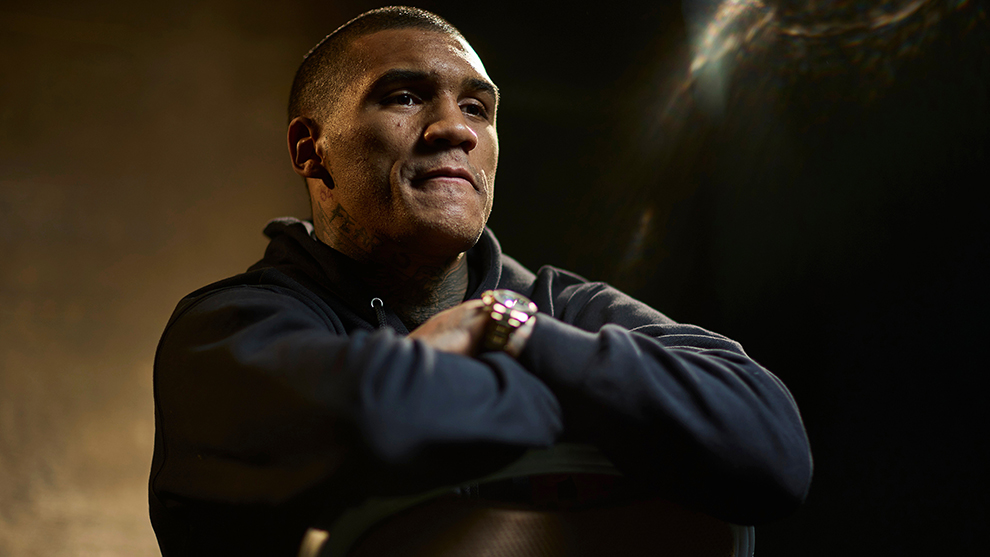The light at the end of the tunnel is some way off for both Benn and British boxing, writes Matt Christie
CONOR BENN, to his credit, has opted not to stay quiet in the face of damning evidence against him. He admits that an illegal substance – clomiphene, an estrogen blocker – was present in his system on July 25 and again on September 1. He is claiming contamination is the cause. What was contaminated – samples, supplements or food – he will not yet divulge.
What we know so far is the following:
On January 19, it was announced that Benn had been removed from the WBC rankings after failing to enrol with the sanctioning body’s Clean Boxing Programme with the Voluntary Anti-Doping Association (VADA). On January 24, Benn stated his team had been instructed to begin the enrolment process. The day before, on TalkSport, Benn called the situation a ‘shambles’ and insisted he would return to the WBC rankings – where he was previously rated fifth at welterweight – the following month.
While still officially unranked by the WBC, Benn stopped Chris van Heerden in four rounds on April 16 and was subsequently reinstated at No.5 in May. Shortly thereafter, talks about a potential domestic showdown with Chris Eubank Jnr are understood to have commenced.
An official announcement was expected on July 19 but due to ongoing discussions about the catchweight and rehydration clause, it was postponed. A press conference was then tentatively set for July 28. Three days beforehand, as part of the WBC Clean Boxing Programme, Benn was tested by VADA. The press conference did not take place – though there is no suggestion this was because of the random test.
On an unspecified date in August, Benn claims he started to work with Dr Usman Sajjad, a man known to have expertise in testosterone treatments, so he could ensure any supplements taken were legal.
On August 9, the contest between Eubank Jnr and Benn was confirmed for October 3 at a catchweight of 157lbs. Terms of the rehydration clause were not disclosed – it was, we were told, a private arrangement between the boxers. Three days later, a press conference occurred to promote the event.
On an unspecified date at the end of August, Benn and his team were told that clomiphene had been discovered in the random test he had undertaken on July 25. The bout with Eubank had not been confirmed at the time of testing so Team Eubank were not informed of the results. The Board were, however.
When talking to journalists Matt Lawton and Wally Downes on October 27, Benn promised that the traces were so low “there was no performance benefit.” He thought it was “a faulty test.” He instructed his team to deal with it. He did not ask for the B-sample to be tested.
On September 1, Benn was tested again by VADA. On September 23, the results of that test – disclosed to Team Benn, Team Eubank and the BBBofC – again proved that clomiphene was in Benn’s system. On September 29, Benn invited members of the media to his gym to promote the fight with Eubank. The following morning, one week after both had been informed of the latest positive test, the rivals appeared together on Good Morning Britain.
On the evening of October 4, the BBBofC ruled that they would ‘prohibit’ the fight. The relevant parties were informed the following morning before the Daily Mail broke the news about the failed test. That afternoon, after a dual statement from promoters Wasserman and Matchroom indicated the fight would go ahead in three days regardless, the open workouts were staged. The fighters wanted to fight, we were told. Another private arrangement in a sport that simply should not allow the boxers to make their own rules. No request for the B-sample to be tested this time, either.
On the afternoon of October 6, after legal action against the Board was considered, the promoters announced that the fight was cancelled.
On October 21, Benn was due to appear at a BBBofC hearing regarding an allegation of misconduct. He did not attend and relinquished his licence. The hearing, in which Benn was legally represented, ruled that the charge of misconduct was upheld. That charge related to allegations that information from the first test had been withheld. Benn argued that it was a VADA test, which falls under the jurisdiction of the WBC, and not the Board.
In the meantime, promoters Eddie Hearn and Kalle Sauerland have insisted they could not pull the event for contractual reasons. Yet it’s understood that the Board found themselves in a legal battle when attempting to uncover the evidence required to. A power struggle between a governing body and those they’re in place to govern.
We don’t know or why the substance found its way into Benn’s system in two separate tests that were 38 days apart. The fighter claims his innocence will be proven by a team of “the best scientists” he has paid to investigate. How the contamination is explained, particularly considering the length of time between the two tests, is the crux of Benn’s case.
